Think more, Eat Less? Thinking about future meals can make you eat less
This article was originally published in Psychology Today on Dr. Alan Castel’s blog, Metacognition and the Mind Thinking about thinking – and how we come to know what we know.
Remembering a past meal, or thinking about a future meal, can lead to less snacking!
While it might make sense that we eat when we are hungry, this is not always true. We eat when we smell something that might be tasty, because we are watching a movie or a game on TV, or because the person next to us offers us some French fries. Thus, often we will eat because we can, or because want to, but not because we are actually hungry or in need of calories. This can result in emotional eating, over-eating, and obesity. In addition, a lot of fad diets just don’t work, as people cannot (and perhaps should not) over-regulate and constantly resist the need to eat.
Surprisingly, the trick to eating less might be our memory, and not our stomach.
Memory can guide when we eat, and when memory doesn’t work, we might eat more. A classic study found that amnesic patients (people who had brain damage and can’t consciously remember past events) will “forget” they had just had lunch, and will then proceed to eat a second lunch 10-20 minutes later [1]. When we are distracted, and especially if we are overly critical of our diet and regulating/restricting certain foods, we will eat more, rather than eat less [2]. Thus, leading a lifestyle where you are often distracted while eating, such as eating while watching TV, while working, or while worrying or when upset (aka emotional eating), can lead to overeating and weight gain.
So how can memory make us eat LESS?
Imagine the last meal you had, what it tasted like, and how much you enjoyed it. Does that make you hungry? Surprisingly, recalling a recent meal can make people eat less.
Research has shown that people who recalled what they had to eat earlier in the day were LESS likely to snack, compared to people who recalled what they ate yesterday [3]. Thinking about the sensory experience of the past meal you had today will make you LESS likely to snack [4], suggesting that enjoying the experience of eating by focusing on the food will lead to a better memory for this event, and that memory can’t then can influence (and potentially reduce) future eating.
We often don’t spend a lot of time remembering past meals, but we do think about our next meal—when will we eat, what will we eat, who might we eat with, what restaurant. Surprisingly, the reduction in food intake doesn’t just work when thinking about past meals. Humans are remarkably good at imagining the future, and engaging in episodic future thought [5]. As a result, we will often spend a lot of time thinking about where and when we will have our next meal. Episodic future thought involves thinking about future events, and how they might unfold, somewhat like simulating the future, but this ability also draws on some memory for the past, and involves similar brain regions. For example, imagine going to your favorite Italian restaurant this weekend, and think about what you will order, the smell of the food, and how you will feel after you eat the first bite, perhaps whether to have desert, and what wine would go well with the meal. This draws on prior experiences, but also involves imagining a new event, so much so that you can almost taste the food and clearly image the environment of the restaurant.
Recent research has shown that thinking about the past, or imagining the future, can have similar effects [6]. In this study, people were asked to recall a recent meal, or to think about a meal that they would have later in the day (episodic future thought). Relative to people who were not thinking about a past or future meal, people who recalled or imagined this future event ate less when offered a plate of cookies. So if you think about the next meal you have today, and then have the opportunity to snack right now, you will eat less, compared to having not thought about the meal you will have later today.
It is unclear why this happens, and you might think that imagining a future meal would only make you hungrier. However, is it not driven by some reminder of being more health conscious, as when people were asked to think about exercising in the past or future they snacked just as much as those who were not thinking about exercise.
It may be that imagining yourself eating in the past or future conjures up the feeling of being full, resulting in less need to satisfy any perceived current hunger—something to think about the next time you reach for a snack!
References
1. Rozin, P., Dow, S., Moscovitch, M., & Rajaram, S. (1998). What causes humans to begin and end a meal? A role for memory for what has been eaten, as evidenced by a study of multiple meal eating in amnesic patients. Psychological Science, 9, 392-396.
2. Herman, C. P., & Mack, D. (1975). Restrained and unrestrained eating.Journal of Personality, 43, 647-660.
3. Higgs, S., Williamson, A. C., & Attwood, A. S. (2008). Recall of recent lunch and itseffect on subsequent snack intake. Physiology & Behavior, 94, 454-462.
4. Higgs, S., & Donohue, J. E. (2011). Focusing on food during lunch enhances lunchmemory and decreases later snack intake. Appetite, 57, 202-206
5. Szpunar, K. K. (2010). Episodic future thought an emerging concept. Perspectives on Psychological Science, 5, 142-162.
6. Vartanian, L. R., Chen, W. H., Reily, N. M., & Castel, A. D. (2016). The parallel impact of episodic memory and episodic future thinking on food intake. Appetite, 101, 31-36.
Expert insight also provided by Lenny Vartanian, Ph.D


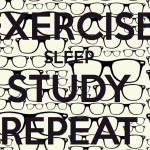







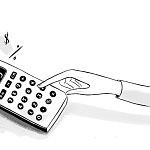

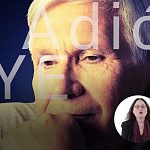
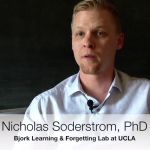

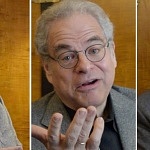






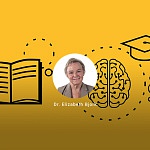

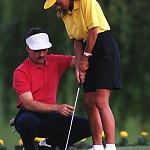
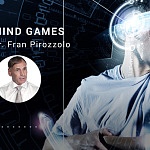




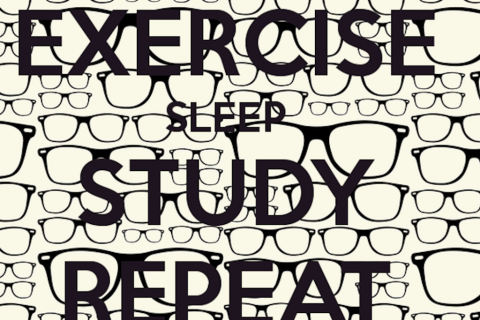

Leave a Reply
You must be logged in to post a comment.